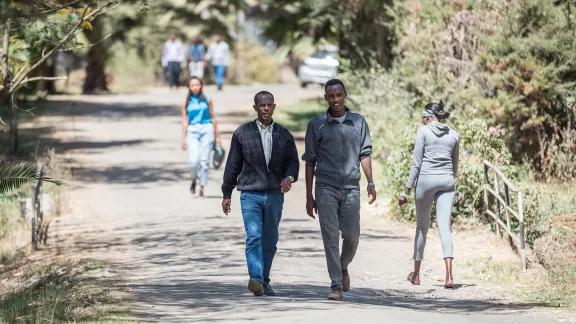
The Mekane Yesus campus is home to 600 residential students of theology, music and media, and of management and leadership. All photos: LWF/Albin Hillert
The Mekane Yesus Seminary in Addis Ababa has a long tradition of theological education. Today, it faces the challenges of a fast-growing church.
(LWI) - Ethiopia’s population is growing. It is a country in quick development, but also one where poverty, ethnic conflicts and natural disasters have placed many people in a precarious situation.
In the midst of the flux is The Ethiopian Evangelical Church Mekane Yesus (EECMY), a Lutheran World Federation (LWF) member church since 1963.
It is a growing church, with a current membership of more than 9,3 million believers, and its congregations reach across all the country’s nine regions.
But how do you preach the Gospel in a country of more than 80 languages? And how do you secure a strong theological foundation among those who are to take on the preaching role?
Mekane Yesus Seminary a commitment to theological education
Rev. Dr Bruk Ayele Asale is president of Mekane Yesus Seminary in Addis Ababa, an institution of the EECMY, and almost as old as the church itself.
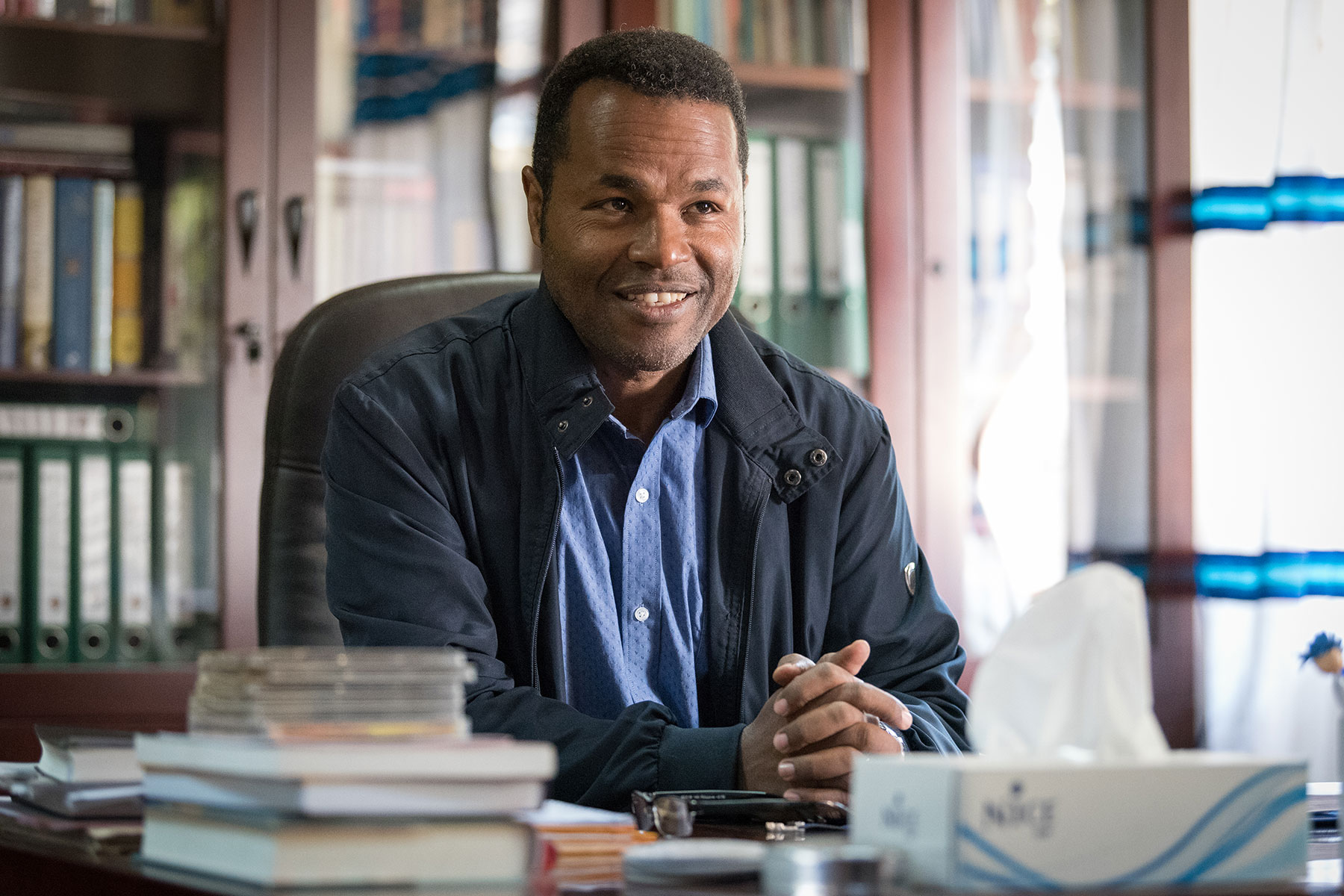
Rev. Dr Bruk Ayele Asale, president of Mekane Yesus Seminary.
He tells the story of an institution that faces and is taking on many challenges in changing times, and an institution that remains firm in the belief that theological education is the foundation on which the church’s ministry must stand.
Today, Mekane Yesus teaches 1,400 students across four colleges: of Theology, Music and Media, Management and Leadership, and of Theological Studies.
Visiting the seminary earlier this year, LWF general secretary Rev. Dr Martin Junge reflected on the role of theological education in the life of the church.
“History shows that without theology, the church goes astray,” Junge said.
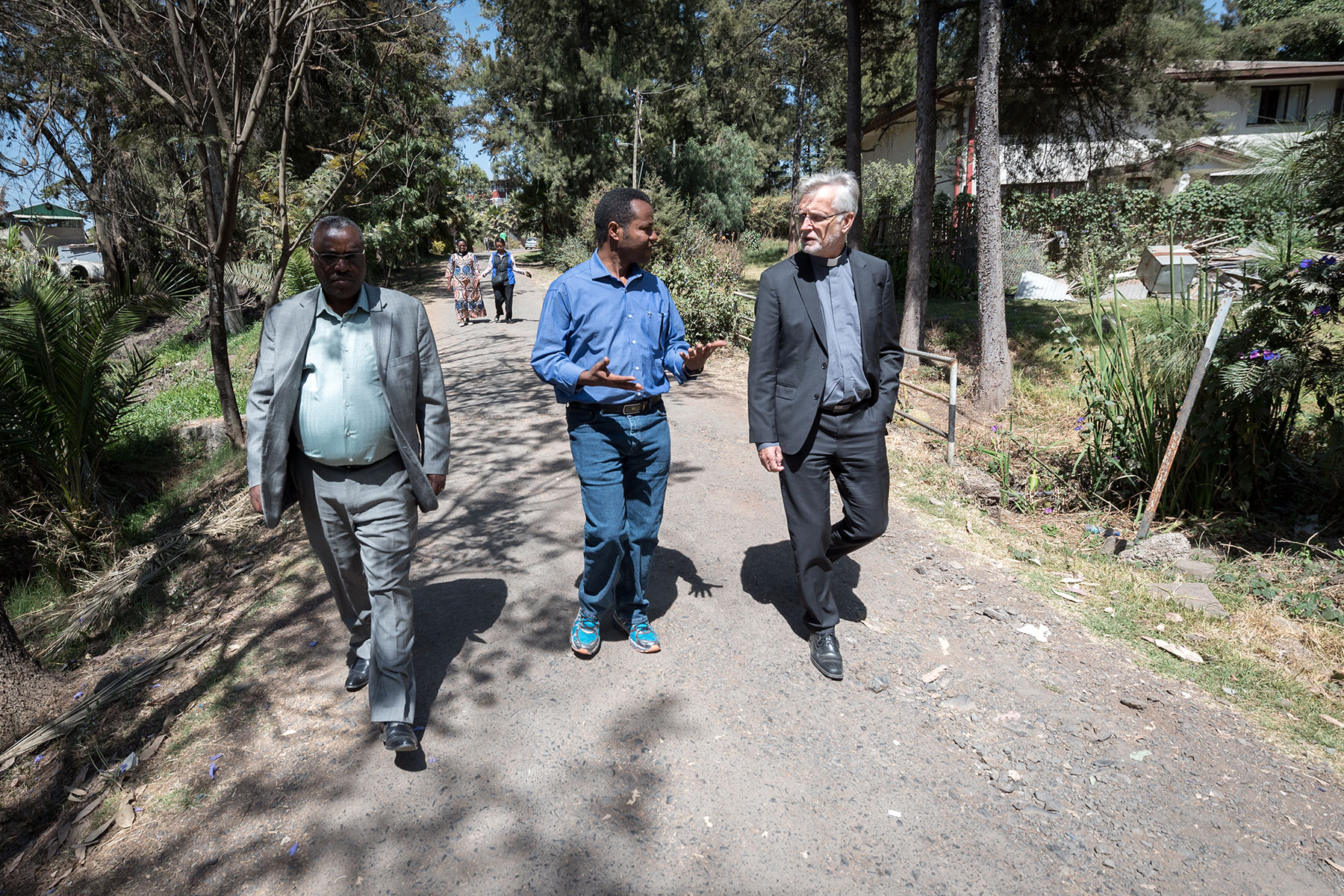
LWF general secretary Rev. Dr Martin Junge (right) visits Mekane Yesus Seminary – here in conversation with seminary president Rev. Dr Bruk Ayele Asale (centre).
“The Lutheran Reformation blessed us with strong theological pointers: Sola Scriptura, Solus Christus, and Sola Fide (‘Scripture alone, Christ alone, Faith alone’). Lutheran theology and practice will always commit to the principles together, in their interdependence,” he added.
Taking on challenges, strengthening visions
“We have so many young people who are passionate to serve the church, and to spread the Gospel,” Bruk said, while explaining that this doesn’t come without challenges.
The seminary is at the brink of the capacity of its facilities, and is coming out of a transition period of changing funding structures and scholarship models.
Bruk highlights a particular challenge in getting women into ministry.
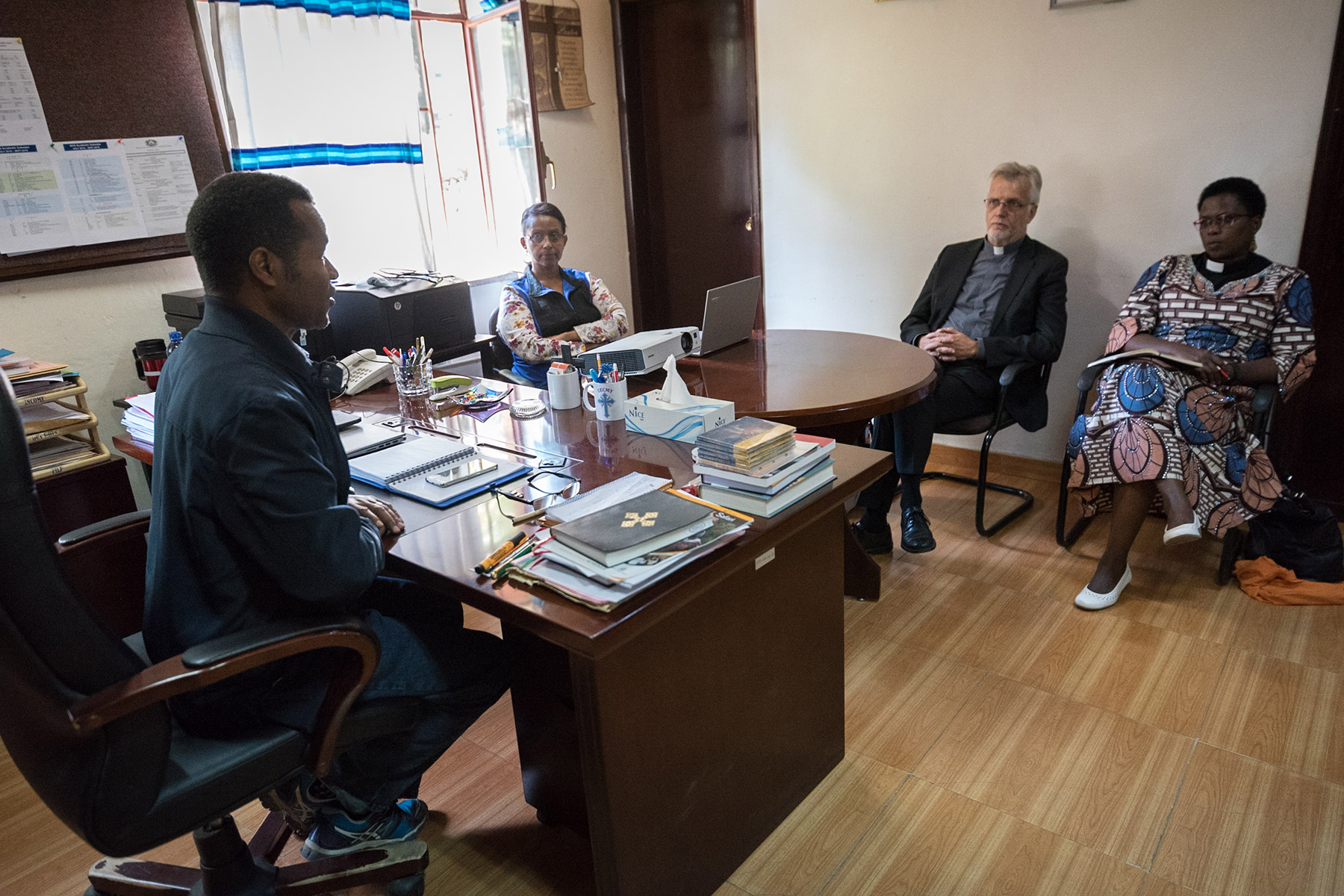
LWF general secretary Rev. Dr Martin Junge (right) visits Mekane Yesus Seminary – here in conversation with seminary president Rev. Dr Bruk Ayele Asale (left) and Rev. Dr Elieshi Ayo Mungure, LWF Area Secretary for Africa.
“Women ordination has been fully accepted in the EECMY, but women are still underrepresented at seminary,” he said. “We are strongly pushing now, for full scholarship programmes for female students.”
Reflecting on the role of the seminary in a church with 9,000+ congregations and several thousand emerging ones, Bruk shared the seminary’s vision of an academically more fully equipped faculty, of better developed campus sites, and of increased capacity.
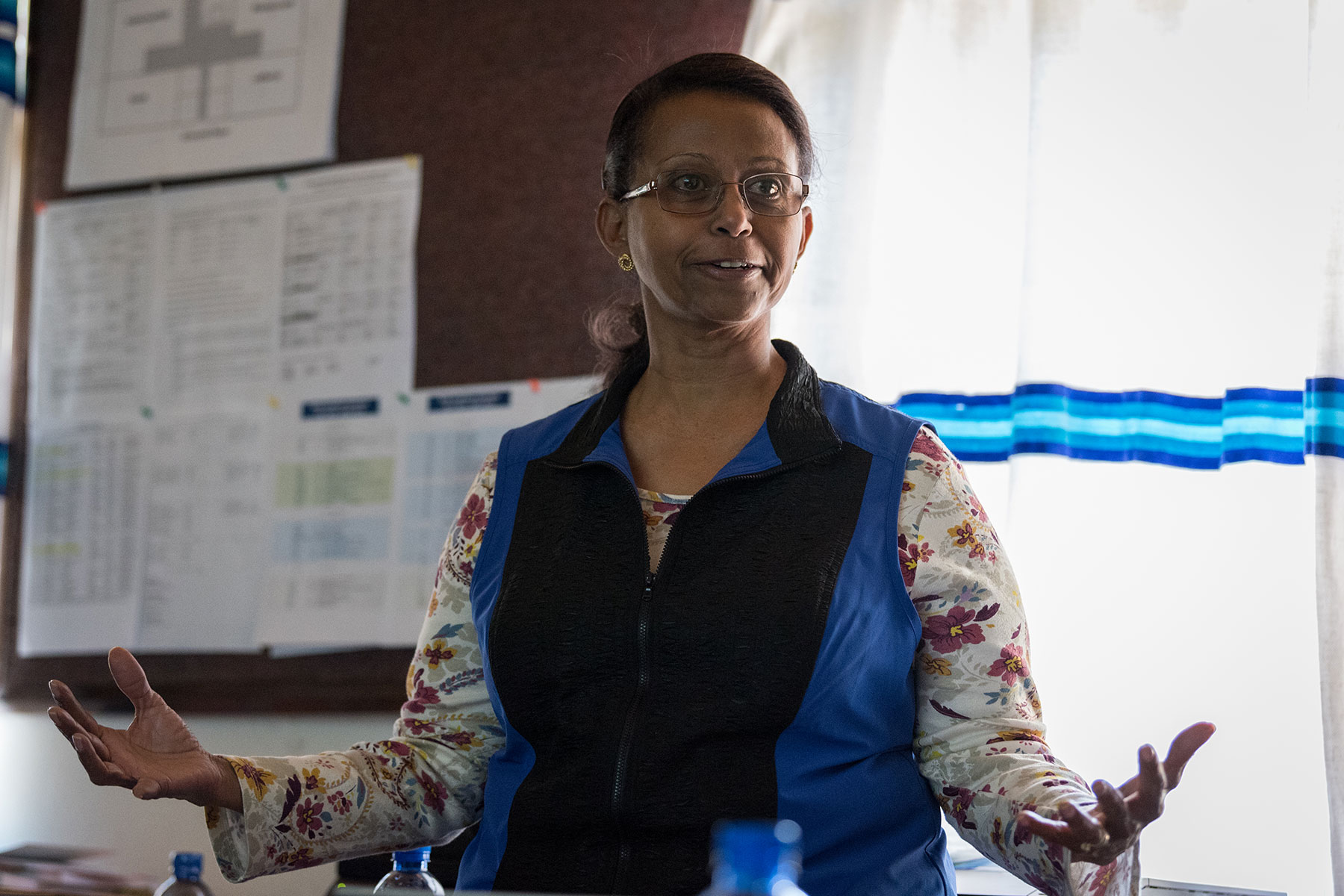
Seminary vice president Dr Haragewen Abraham Kinde.
Seminary vice president Dr Haragewen Abraham Kinde described recent work in rebuilding the seminary campus in Bishoftu, Oromia regional state, reviving its ministry after a 40-year down period. “We know from the Bible, that God’s miracles often happen after 40 years,” she said.
“Ethiopia’s population is growing, and the tradition is still strong to bring your children to your church. If you are Mekane Yesus, your children become Mekane Yesus. Our church is growing, and we have to prepare for it,” Bruk added in conclusion.
Written by Albin Hillert.
“We Believe in the Holy Spirit: Global Perspectives on Lutheran Identities” takes place from 23 to 27 October in Addis Ababa, Ethiopia. The meeting is hosted by The Ethiopian Evangelical Church Mekane Yesus (EECMY). LWF study processes provide an opportunity for a shared theological approach to identifying and addressing contemporary issues that the member churches face.


